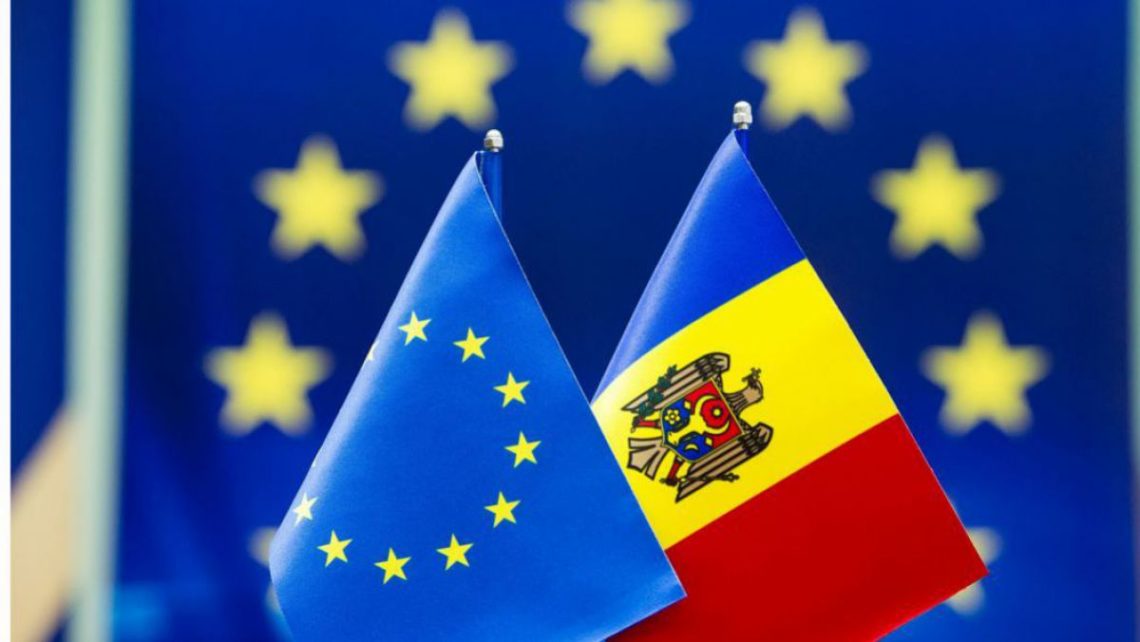#NEXT4EU TV Debate: European Integration and progress made on the three outstanding measures from the nine conditions set by the EU

Institut für Europäische Politik from Berlin (#IEP), in cooperation with the Institute for European Policies and Reforms (IPRE) and the Institute for Strategic Initiatives (IPIS), organized on Thursday, March 14, 2024, a TV debate on Moldova 1, organized within the project “#NEXT4EU – Young generation for EU integration of the Republic of Moldova”.
The participants in the debate, which was moderated by Mircea Surdu, discussed the progress made on the three key measures outlined by the EU in June 2022: judicial reform, anti-corruption efforts, and de-oligarchization.
Below are some of the key points raised by the speakers.
Mihai Mogildea, Deputy Director, IPRE: “In the process of integration, we are likely midway along the path. We have already traversed several steps. Our journey toward accession began in March 2022, following Russia’s invasion of Ukraine. By submitting our application for membership and obtaining the status of candidate country, we effectively embarked on this path of accession. We now understand that EU membership depends only on us and our efforts. As long as we implement the necessary reforms and meet the EU’s requirements, we will become a member of this organization. In simple terms, the ball is in our court, and our actions will determine how we seize this opportunity for development, economic and social growth, and the future of our country. There are several factors influencing our approach to the EU that concern society. The first is the political choices citizens have. It’s evident that within our political spectrum, there are pro-European parties as well as pro-Russian parties, which receive financial support from and are backed by the Russian Federation. Should these pro-Russian parties come into power, our European perspective will undoubtedly become more distant. It’s crucial to make a wise and well-informed choice in supporting political leaders who possess integrity, strength of character, and a clearly pro-European stance.”
Ilie Chirtoaca, President of the Legal Resources Centre from Moldova (CRJM): “On the justice reform, we’re facing considerable challenges. We have recent examples, such as the failure to appoint a Prosecutor General, which is one of the conditions within the context of European integration. Therefore, we must collectively walk this path alongside all citizens. It’s imperative to join our efforts in order prevent this journey from becoming increasingly prolonged. The responsibility lies with the authorities, civil society, and all stakeholders genuinely committed to seeing the Republic of Moldova become part of the European Union. Recognizing the complexity of justice reform, the European Commission and other EU institutions have emphasized the importance of initiating negotiations with the judicial and concluding them with the judicial. Genuine progress in justice reform and the fight against corruption will serve as a key indicator of our success in European integration.”
Adrian Lupusor, director of the independent think tank “Expert-Grup”: “We need to recognize that we’re entering negotiations after about a decade of implementing the Association Agreement with the EU. Therefore, we already have a history and a fairly integrated trade framework with the EU. The EU stands as Moldova’s most significant trading partner and primary investor. This points to a strong economic closeness. The responsibility for the pace of reform implementation primarily falls on the government of a country. While regional security crises may impact Moldova, they shouldn’t hinder the government’s progress in advancing reforms. We observe an ambitious agenda, but often progress is slower than it should be. European integration relies solely on us. As a small country, Moldova will always be vulnerable to various external shocks. Certainly, events like the war in Ukraine and energy crises constitute external obstacles affecting our integration pace. However, these external challenges shouldn’t serve as excuses for any government. The primary cause of slow reform progress will always lie within domestic and political factors, and ultimately, the government. The real impediment lies within our borders, not outside.”
For more details, you can watch the video recording of the debate here.
The debate took place within the project “#NEXT4EU – Young generation for EU integration of the Republic of Moldova “, which is supported by the Federal Foreign Office of Germany in the framework of its civil society cooperation programme.

